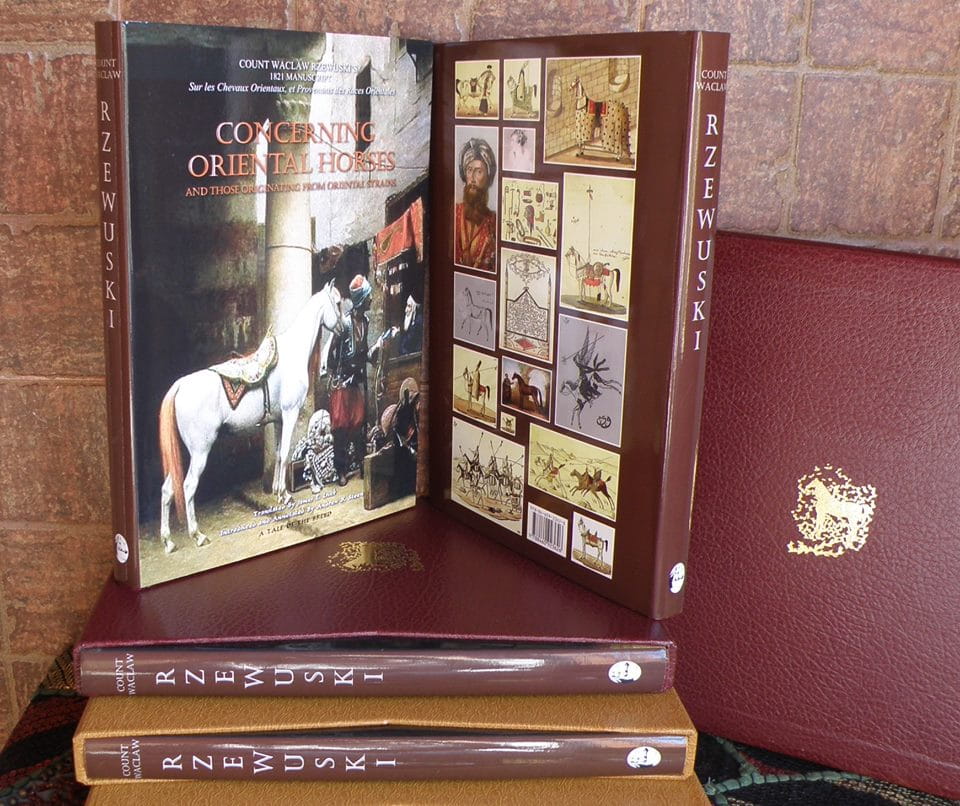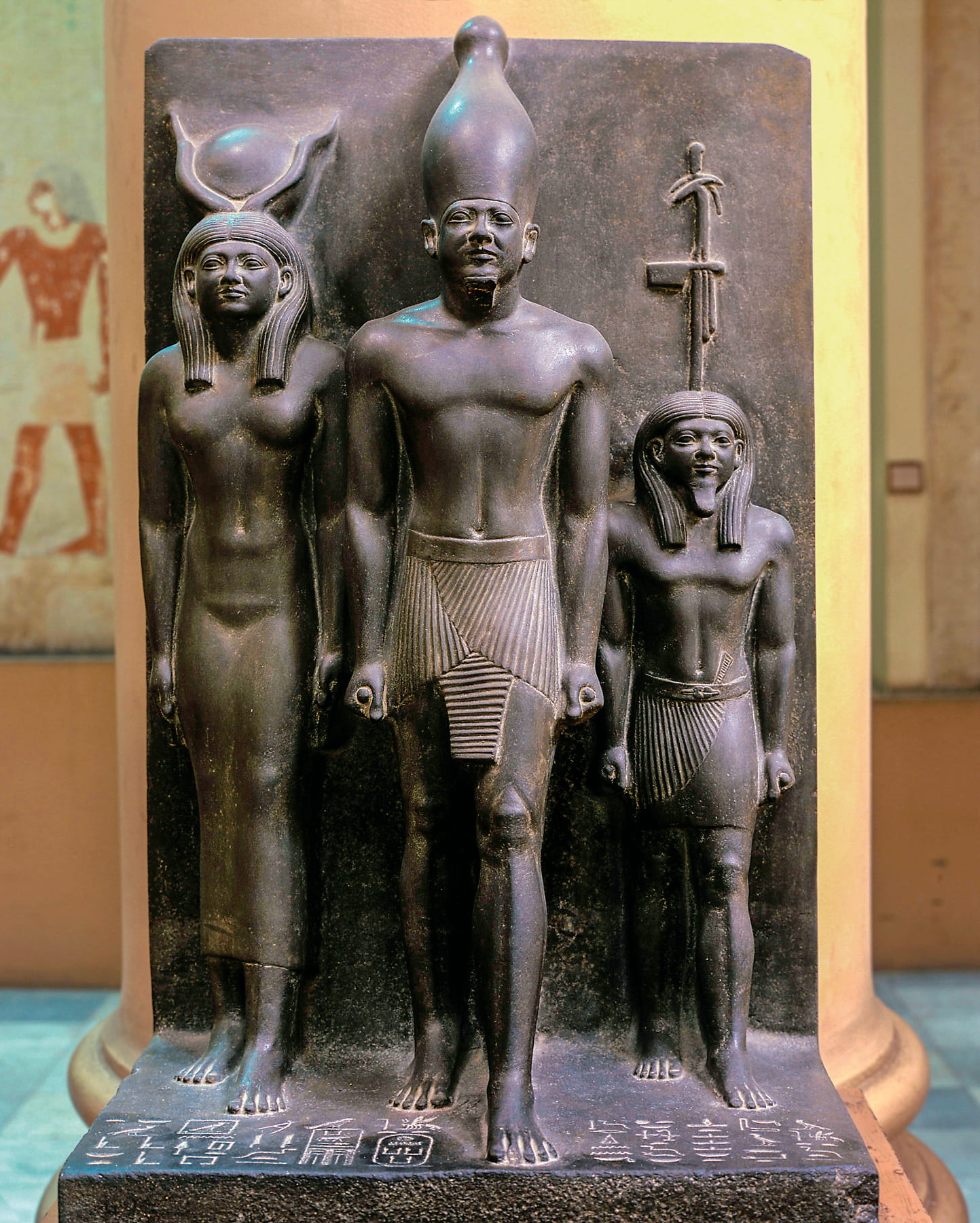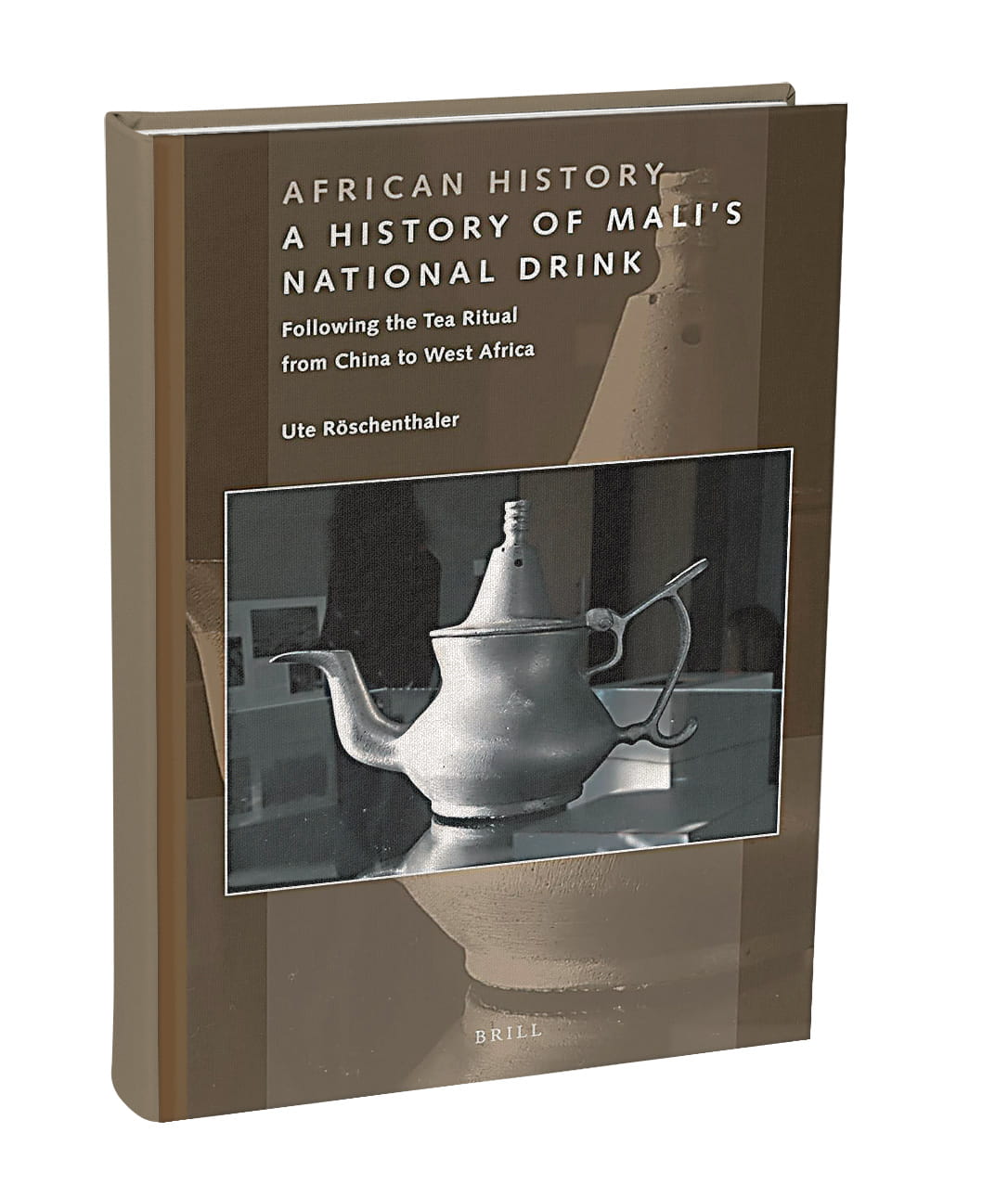
Count Waclaw Rzewuski's Concerning Oriental Horses and Those Originating from Oriental Strains
Jane Waldron Grutz
James E Luck, trans.; Andrew K. Steen, intro.
2015, Tale of the Breed Books, 078-8-46092-362-6, £125 hb.
In 1817 Count Waclaw Rzewuski left Poland to journey to the Najd, the great central plateau of Arabia where the famed nejdi koheilans (high-caste Arabian horses) were bred and raised by the Bedouin, but almost never sold to a Westerner. Rzewuski was no ordinary Westerner, however. One of the wealthiest and most colorful Europeans ever to arrive in the region, he lived and rode with the local tribes from which he purchased a number of purebred Arabians. In 1820 Rzewuski returned to Poland where he founded one of the first Arabian stud farms in Europe and completed his memoirs. Andrew Steen has collaborated with translator James Luck to publish much of Rzewuski’s manuscript and combine it with the story of this remarkable man’s life. Illustrated with Rzewuski’s own sketches, this beautifully bound volume goes far to explain how the count’s appreciation of the Arabian horse led to a life of adventure and to his admiration for the Bedouin, who shared their deep love of the nejdi koheilan with the golden-haired aristocrat they knew as Abu Asad, Father of the Lion.
You may also be interested in...

The Legacy of Egyptologist George Reisner—Our Book Review
When George Reisner died in 1942, he did so surrounded by ghosts—not just the pharaohs he’d unearthed but the stacks of unpublished notes that entombed his legacy.
Green Tea in Mali: Culture Pours From Global Trade
In 2005, while attending a tea ceremony in Bamako, the capital of Mali, where serving tea punctuates daily life across courtyards, offices and roadside stalls, anthropologist Ute Röschenthaler realized that green tea had become more than a national drink.